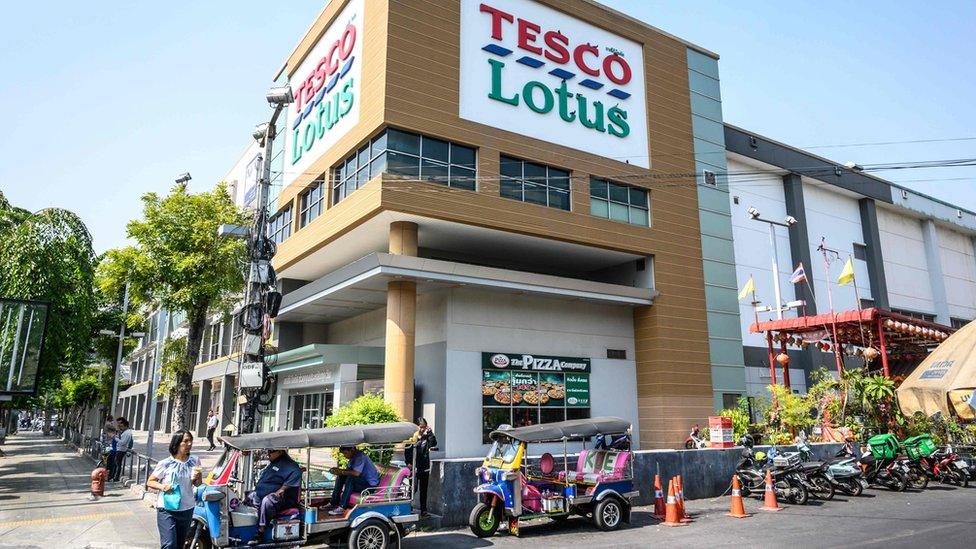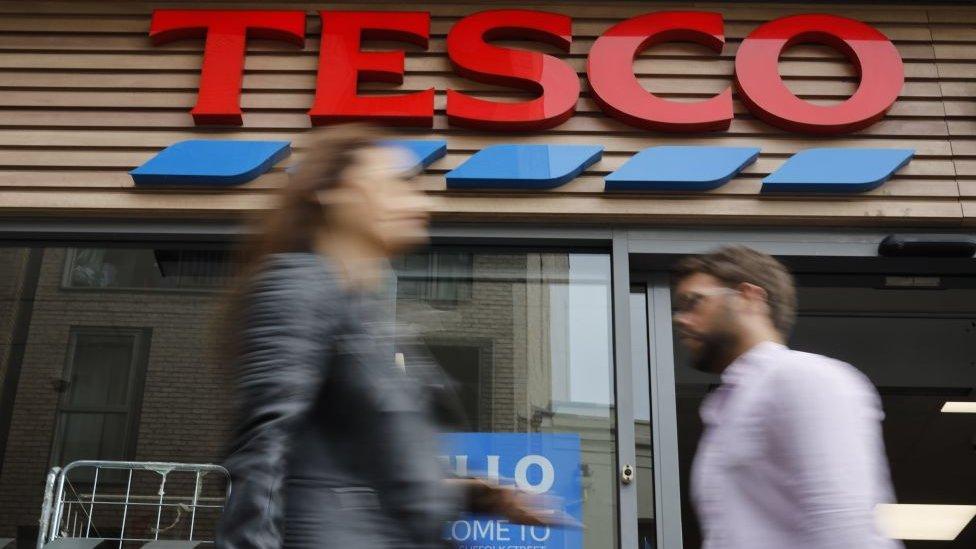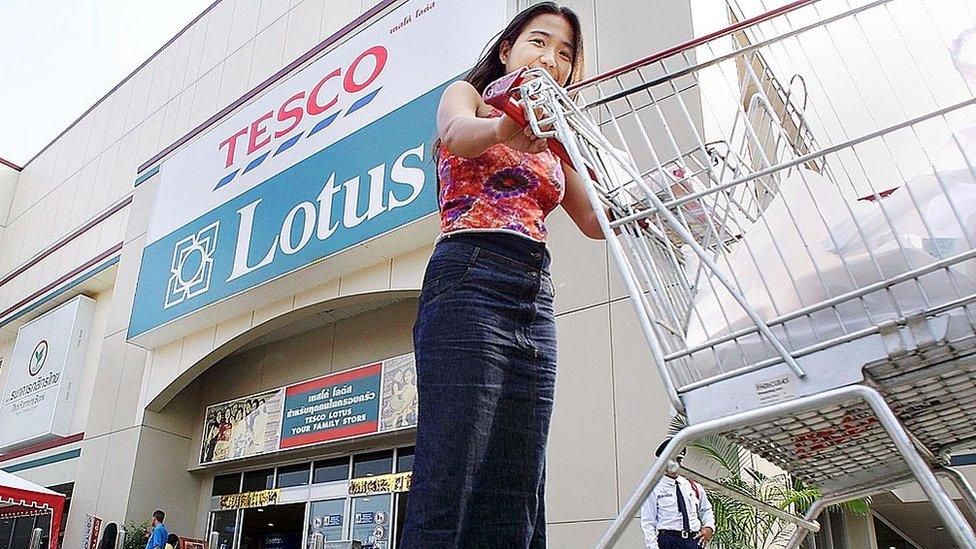Tesco faces Thai regulatory threat to $10bn deal
- Published

The sale of Tesco's prized Asian assets - which are potentially valued at up to $10bn (£7.7bn) - may be at risk because of Thailand's competition regulations.
The supermarket chain has nearly 2,000 outlets in Thailand and Malaysia that three Thai groups are hoping to buy.
However, the successful bidder could face regulatory hurdles from Thailand's new anti-competition body.
The country's fair trade commission said the winning bidder could own more than half of the sector in the country.
Sakon Varanyuwatana, chairman of Thailand's Office of Trade Competition Commission, told me: "The size of this bid and its scale means that potentially whoever ends up buying the Tesco assets could end up having more than 50% of the convenience, supermarket and hypermarket retail landscape."
Monopolising the market
Thailand's fair competition rules say that if a merger gives a company more than half of the total market share, it must seek permission from the country's fair trade commission.
If it breaks the law, then it could be hit with a fine of not more than 0.5% of the merger's transaction value.
All of the groups which have expressed interest in buying out Tesco are major retailers in Thailand, so face the risk of monopolising the market to varying degrees.
CP Group, the Central Group and the TCC Group are all understood to be in the running, the BBC understands.
Tesco has been considering the sale of its 2,000 retail outlets in Thailand and Malaysia since last year because of interest from potential bidders, whom it will not name.
The CP Group and the Central Group would not comment when contacted by the BBC, while the TCC Group has not responded.
The anti-competition rules could mean Tesco may not get the price it wants for the stores.
What is at stake?
The majority of Tesco's Asian stores are in Thailand and make up 28% of the country's grocery market, according to a report by Euromonitor in 2018., external They are operated under the Tesco Lotus brand.
The Thai business itself is thought to be worth between $6bn and $8bn, and could give the successful bidder access to deep supply chains among Thai farmers, allowing them to set prices for both suppliers and customers.
Tesco shares have jumped on speculation about the bids for its Thai and Malaysian business, which I have been told could fetch up to $10bn.
Bids are due as early as Wednesday, but they would have to be submitted to the Thai anti-competition office at the same time, according to Mr Sakon.
"Any bidder would have to get approval from us first to ensure that they have done the due diligence and analysed what impact their purchase would have on the retail landscape in their sector and to ensure that it doesn't lead to a monopoly or is anti-competitive," he told me.
He also confirmed that some of the companies mentioned in the media have made inquiries with his office about the bidding and approval process.
"They want a clarification about the procedure that they have to prepare," he said. "The bidder can put in a bid to Tesco simultaneously if they meet the criteria prescribed in our notification."
Political independence
There are political considerations too.
"In the past, there have been concerns in Thailand over the political influence of well-connected Thai conglomerates who have been able to sway business decisions in their favour," says Pornapa Luengwattanakit of Baker & McKenzie in Bangkok. Ms Pornapa helped to draft the Thai anti competition law.
"But under the new Trade Competition Act, the trade competition commission is an independent body and not under control of any political regime. They are now quite active and closely monitoring this high-profile transaction," she adds.
The new Trade Competition Act also forbids members on the board of a company from being political, business or governmental figures.
"We have a new office independent of the ministry of commerce or any political influence," said Mr Sakon. "Regardless of how big a company you are, we want to make sure that the small and medium-sized enterprises in Thailand do not get hurt."
Analysts have told me that Tesco will have to consider who can pull off this deal if it wants to deliver value to its shareholders. But while the price it gets is important, it will need to first push this past the strict gaze of Thai regulators.
In turn, the new Thai anti-competition regulator will be keenly watched. Any suggestion of influence from politically well-connected players in the Thai retail sector could threaten its independence, ultimately risking its credibility.
- Published9 January 2020

- Published9 December 2019
